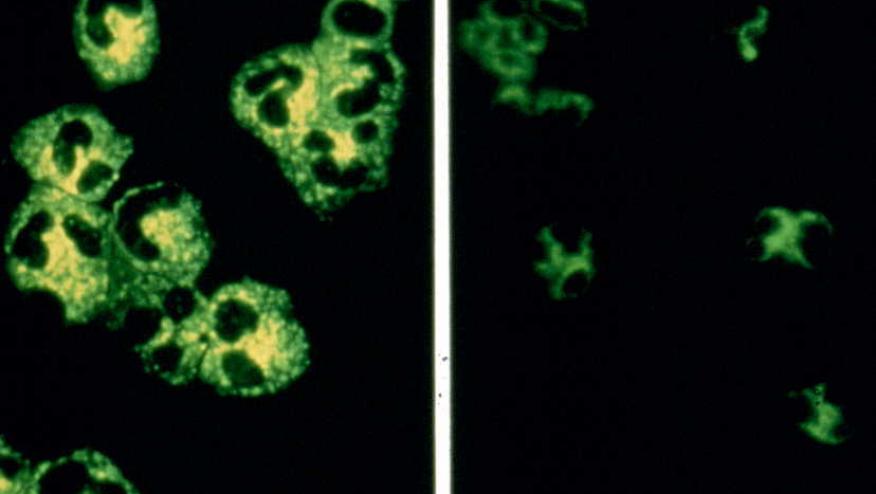STING/IFN Activation Promotes ANCA-Associated Vasculitis Progression Save

Research presented in the Journal of Experimental Medicine shows that ANCA-associated vasculitis (AAV) may be propagated by pathogenic mechanisms triggering cGAS/STING/IRF3-dependent IFN-I release.
The studied 31 patients with ANCA vasculitis and 57 healthy controls while also developing a novel mouse model that develops pulmonary AAV (mimicking severe disease in patients).
Disease was induced by immunogenic DNA during disease onset, leading to activation of cGAS/STING/IRF3-dependent IFN-I release with subsequent endothelial damage, pulmonary hemorrhages, and lung dysfunction.
They found that while monocyte-derived macrophages were major disease drivers by producing most IFN-β, resident alveolar macrophages were involved in tissue clean up and limiting infiltration of IFN-β–producing macrophages.
They showed that pharmacological inhibition of STING, IFNAR-I, or its downstream JAK/STAT signaling with baricitinib reduced disease severity and accelerated recovery.
Our findings suggest an important pathogenic role for the STING/IFN-I axis in promoting pulmonary AAV progression and identifies a potential therapeutic targets to to treat AAV.










If you are a health practitioner, you may Login/Register to comment.
Due to the nature of these comment forums, only health practitioners are allowed to comment at this time.